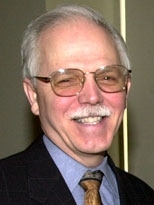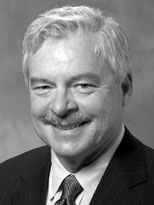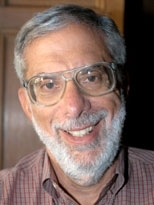Three experts in their fields who served MIT as deans of the Schools of Engineering, Management and Science--collectively contributing more than two decades to Institute administration--will step down and return to academic pursuits, Provost L. Rafael Reif has announced.
Thomas Magnanti, dean of the School of Engineering since 1999, Richard Schmalensee, the John C. Head III Dean of the MIT Sloan School of Management since 1998, and Robert Silbey, dean of the School of Science since 2000, provided "wisdom and expertise" during periods of significant transition, making it "possible for us to move ahead without disruption," Reif wrote in a Sept. 22 e-mail to the MIT community.
Noting that all three deans had long "looked forward to pursuing academic interests they had put aside for some time," Reif expressed his gratitude to them for delaying their own plans "in favor of MIT's and their schools' best interests."
Magnanti and Silbey will stay on as deans until their successors are identified, while Schmalensee will stay on through the end of the current academic year.
Thomas Magnanti
In a message to the school's faculty and staff, Magnanti wrote, "It has been an immense pleasure, indeed a privilege, to collaborate with such outstanding faculty, staff, students, alumni/ae and friends of the Institute, and to serve as dean of what I have often referred to as the best engineering school in the galaxy.
"Over the past eight years, the school has hired 119 faculty members, including 34 women and nine underrepresented minority faculty. Through iCampus, the d'Arbeloff fund, school-based funding, and many departmental initiatives we have made significant investments in educational innovation, including the new Undergraduate Practice Opportunities Program, and we have developed many new vectors of research."
Magnanti has been a key player in the development of major industrial partnerships with Hewlett-Packard and Microsoft, as well as such pioneering collaborations as the Singapore-MIT Alliance.
"It's been a wonderful experience," Magnanti said.
Magnanti, named an Institute Professor in 1997, will return to his research on the theory and application of large-scale optimization. He said he is looking forward to "an opportunity to teach some of the brightest minds in the world" and plans to complete a couple of books.
Richard Schmalensee
After joining the MIT faculty as a professor of economics and management in 1977, Schmalensee directed the MIT Center for Energy and Environmental Policy Research from 1991 to 1999. He took over as deputy dean at Sloan in 1996.
Catalyzing the development of a landmark 209,000-square-foot management building, slated for a 2007 groundbreaking, and helping to raise $220 million are among Schmalensee's foremost accomplishments of the past eight years.
The high points, he said, "have been meeting and working with incredible people to help strengthen a school I care about."
Schmalensee's accomplishments include forming the MIT Sloan Fellows Program in Innovation and Global Leadership and redesigning the M.B.A. program.
Under Schmalensee's leadership, international programs, including the China Management Education Project and the Global Entrepreneurship Laboratory, have been enhanced. He oversaw the creation of the Global Leadership Lab (G-Lab) and the MIT Leadership Center.
With the MIT-Harvard Division of Health Sciences and Technology, Schmalensee created the dual-degree Biomedical Enterprise Program.
Schmalensee served on the President's Council of Economic Advisers from 1989 through 1991. He has served as a member of the Environmental Protection Agency's Environmental Economics Advisory Board and as chair of its Advisory Council on Clean Air Act Compliance Analysis.
Schmalensee's research centers on industrial economics and its application to managerial and public policy issues. "I plan to return to teaching and research, focusing on applying economics to understand market processes, as well as government regulation and its impacts," he said.
Robert Silbey
Silbey, the Class of '42 Professor of Chemistry, joined the MIT faculty in 1966, becoming head of the chemistry department in 1990 and director of the Center for Materials Science and Engineering in 1998. He took over as interim dean in February 2000 and was named dean the following year.
An advocate for excellence in teaching, Silbey supported innovative approaches to undergraduate education such as the Technology Enhanced Active Learning program, which changed the way freshman physics is taught. For the past two years, Silbey has chaired the Task Force on the Undergraduate Commons.
Silbey said some of the highlights of his tenure were the awarding of four Nobel prizes to School of Science faculty members; overseeing the construction, "on time and on budget," of the Brain and Cognitive Sciences Complex; and "convincing Maria Zuber to agree to be the first woman department head in the School of Science and convincing June Matthews to be the first woman director of a major laboratory (the Laboratory for Nuclear Science)--not because they are women, but because they were the best people for the jobs," he said.
During Silbey's tenure, the school hired more than 80 faculty members.
Silbey's research interests include theoretical studies of the low temperature thermal properties of glasses, energy and electron transfer and relaxation in molecular aggregates, optical and electronic properties of conjugated polymers and the dynamics of highly excited molecules. "I intend to return to full-time teaching and research when I step down as dean," he said.
A version of this article appeared in MIT Tech Talk on September 27, 2006 (download PDF).








